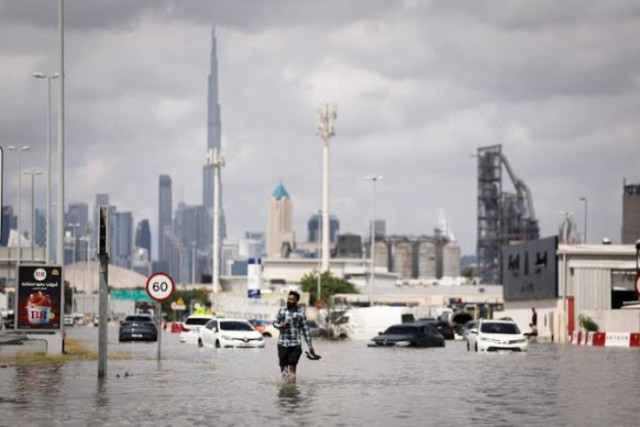Following the floods that affected part of United Arab Emirate, Afghanistan and Pakistan, scores have been killed via the heavy storm and downpour.
Around 70 people have been killed by heavy rains lashing Afghanistan over the past five days, the government’s disaster management department said on Wednesday.
Neighbouring Pakistan has also been hammered by spring downpours, with 65 people killed in storm-related incidents as rain falls at nearly twice the historical average rate, officials told AFP.
Afghanistan was parched by an unusually dry winter that desiccated the earth, exacerbating flash-flooding caused by spring downpours in most provinces.
Disaster management spokesman Janan Sayeq said “approximately 70 people lost their lives” as a result of rains between Saturday and Wednesday.
Fifty-six others have been injured, he added while more than 2,600 houses have been damaged or destroyed and 95,000 acres of farmland wiped away.
The United Nations last year warned that “Afghanistan is experiencing major swings in extreme weather conditions”.
At least 25 people were killed in a landslide after massive snowfall in eastern Afghanistan in February, while around 60 were killed in a three-week spate of precipitation ending in March.
In Pakistan, heavy downpours between Friday and Monday unleashed flash floods and caused houses to collapse, while lightning killed at least 28 people.
The largest death toll was in northwestern Khyber Pakhtunkhwa, where 32 people have died, including 15 children, and more than 1,300 homes have been damaged.
“All the casualties resulted from the collapse of walls and roofs,” the spokesman for the province’s disaster management authority, Anwar Khan, told AFP on Wednesday.
Dubai’s giant highways were clogged by flooding and airport passengers were urged to stay away on Wednesday as the glitzy financial centre reeled from record rains.
At least one person was killed after a 70-year-old man was swept away in his car in Ras Al-Khaimah, one of the country’s seven emirates, police said.
Climatologist Friederike Otto, a specialist in assessing the role of climate change on extreme weather events, told AFP it was “highly likely” that global warming had worsened the storms.




















